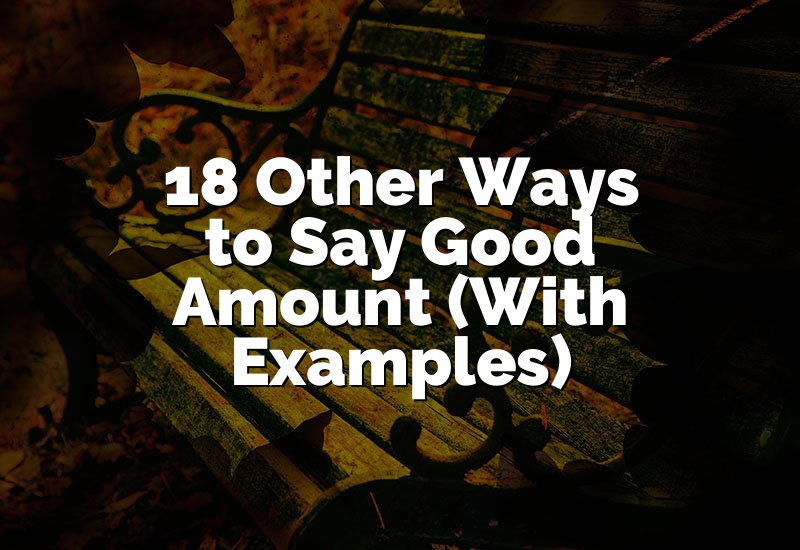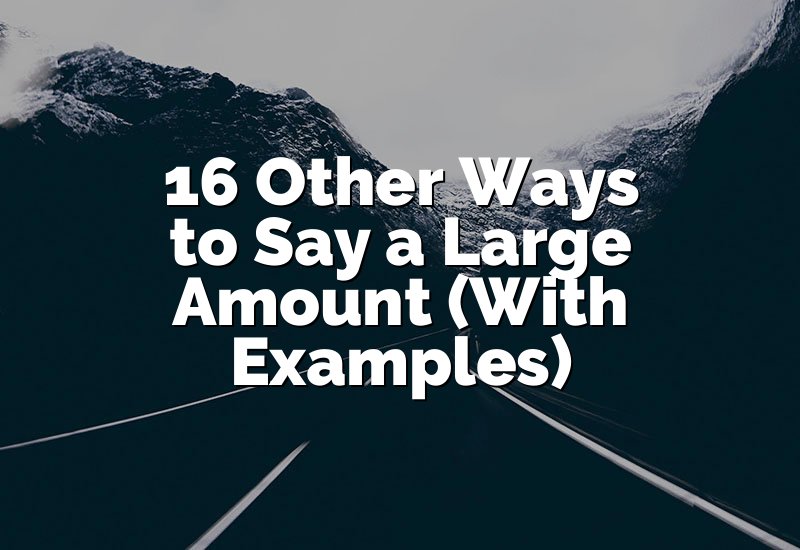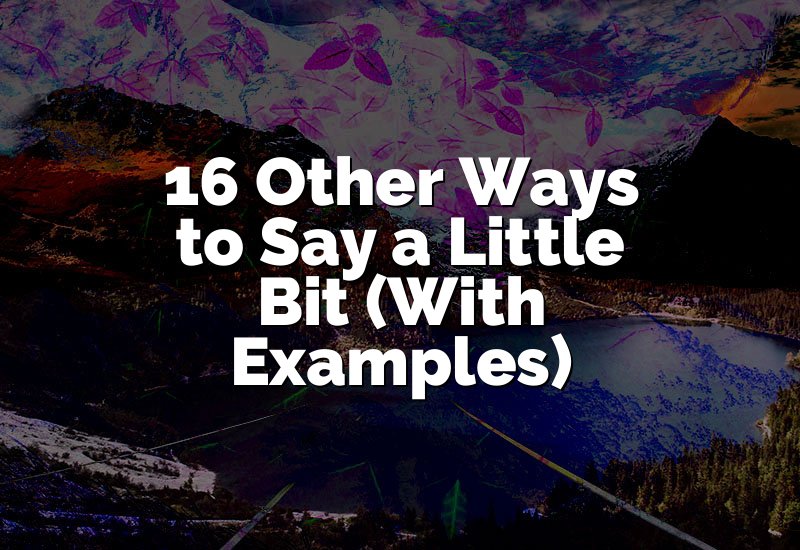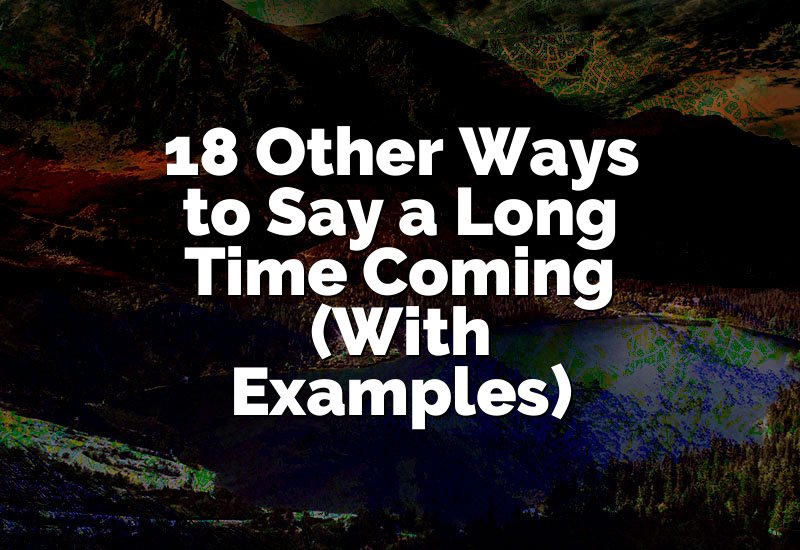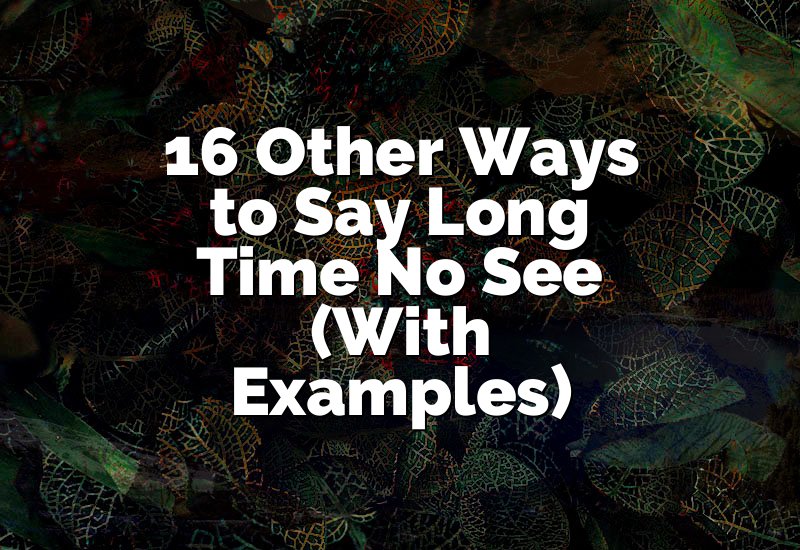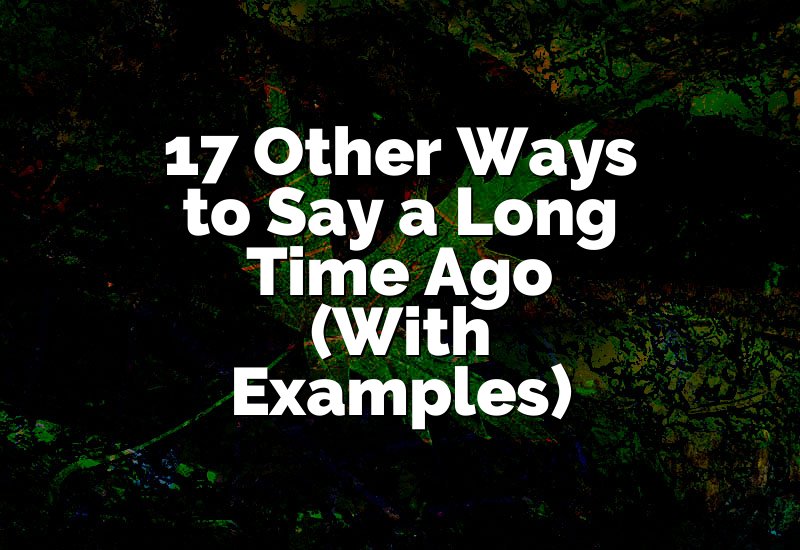Interruptions can be tricky. Whether in emails, calls, or face-to-face, politely acknowledging your intrusion makes a big difference. Phrases like "Excuse me for interrupting" or "I hope I'm not bothering you" help maintain respect while communicating your message. Choosing the right alternative sets the tone for professional and personal interactions, keeping your conversations smooth and courteous.
Excuse Me for Interrupting
"Excuse me for interrupting" is a widely appreciated way to acknowledge that you are breaking someone's focus. It is effective because it immediately signals respect for the other person's time and attention, while still allowing you to speak. Use it in meetings, phone calls, or casual discussions when you need to step into someone's space politely. This phrase works well in formal and informal settings because it balances courtesy and assertiveness.
- Excuse me for interrupting, but I have an urgent update.
- Excuse me for interrupting, could I ask a quick question?
- Excuse me for interrupting, I didn't want to miss this opportunity.
Pardon Me for Bothering You
"Pardon me for bothering you" is a considerate phrase that communicates awareness of the other person's potential inconvenience. It is ideal for situations where your message might be unexpected or slightly disruptive. Using this phrase conveys humility and thoughtfulness, which helps maintain positive relationships. It is perfect for both professional environments and personal interactions when you want to approach someone respectfully without seeming intrusive.
- Pardon me for bothering you, but can I get your advice?
- Pardon me for bothering you, may I take a moment of your time?
- Pardon me for bothering you, I have something important to share.
I Hope I'm Not Disturbing You
"I hope I'm not disturbing you" is a gentle way to show consideration before speaking. It is best used in situations where you are unsure if the other person is busy or engaged. This phrase signals politeness and empathy, making your approach less abrupt. It can be used in emails, messages, or in-person conversations and is particularly useful when reaching out to someone you do not know well.
- I hope I'm not disturbing you, but I need your guidance.
- I hope I'm not disturbing you, can we discuss this briefly?
- I hope I'm not disturbing you, I have a quick question.
Forgive Me for Interrupting
"Forgive me for interrupting" expresses a slightly more formal tone than other alternatives. It works well when addressing someone senior, a client, or in a formal meeting. This phrase shows humility and acknowledges the imposition, making the listener more receptive. Using it demonstrates professionalism and awareness of etiquette, ensuring your message is received without appearing rude or inconsiderate.
- Forgive me for interrupting, I need to clarify a point.
- Forgive me for interrupting, may I add a suggestion?
- Forgive me for interrupting, I have an urgent concern.
Sorry to Intrude
"Sorry to intrude" is concise and conveys awareness of entering someone's space. It works well in both casual and professional settings, signaling that your presence might be unexpected. This phrase is particularly useful when initiating conversations in someone's office, at a gathering, or during private moments. It creates a respectful atmosphere while allowing you to communicate your purpose efficiently.
- Sorry to intrude, but could we discuss this matter?
- Sorry to intrude, may I offer my opinion?
- Sorry to intrude, I have a quick question for you.
May I Have a Moment?
"May I have a moment?" directly asks for attention without assuming it. It is effective in meetings, discussions, or even casual chats when you need someone's focus briefly. This approach is polite yet assertive, giving the other person the chance to respond willingly. It works well for introducing topics, asking questions, or providing updates in a respectful manner.
- May I have a moment to discuss this project?
- May I have a moment to explain my idea?
- May I have a moment to clarify something important?
See Also: 28 Best Responses to a TBH on Instagram
Hope I'm Not Interrupting
"Hope I'm not interrupting" is a versatile phrase suitable for casual and formal situations. It expresses care about the other person's current activity while signaling your intention to speak. This phrase is ideal for phone calls, messages, and in-person conversations, creating a considerate environment. It balances politeness and directness, making the interaction smoother and more comfortable.
- Hope I'm not interrupting, but can I ask a question?
- Hope I'm not interrupting, do you have a minute to chat?
- Hope I'm not interrupting, I need your input on something.
Apologies for the Interruption
"Apologies for the interruption" is formal and professional, making it suitable for business meetings, emails, or presentations. It conveys recognition that your message might disrupt the flow and shows respect. Using this phrase demonstrates etiquette, making your request or comment more acceptable. It is perfect for situations requiring tact and thoughtful communication.
- Apologies for the interruption, may I present my idea?
- Apologies for the interruption, I need to clarify a detail.
- Apologies for the interruption, could I get your opinion briefly?
I Don't Mean to Disturb
"I don't mean to disturb" is soft and polite, ideal when contacting someone unexpectedly. It reassures the listener that you are aware of potential inconvenience while still seeking attention. This phrase works well in calls, emails, or face-to-face meetings. It's best used when addressing colleagues, friends, or clients to maintain respect while requesting time to communicate.
- I don't mean to disturb, but could you review this document?
- I don't mean to disturb, may I have a quick word?
- I don't mean to disturb, I need your guidance briefly.
Allow Me to Interrupt
"Allow me to interrupt" is direct yet courteous, useful in meetings or discussions where adding input is necessary. It signals confidence while maintaining politeness. This phrase is suitable for professional settings or collaborative conversations. Using it appropriately ensures your point is heard without being intrusive or abrupt, creating a balanced interaction.
- Allow me to interrupt, I have a suggestion.
- Allow me to interrupt, may I clarify a point?
- Allow me to interrupt, I'd like to contribute an idea.
If I May Interject
"If I may interject" is formal and professional, ideal in meetings, debates, or presentations. It shows respect for the speaker's turn while requesting attention. This phrase conveys courtesy and authority simultaneously. It works well for professionals needing to add insight without being disruptive, maintaining the flow of discussion while ensuring your voice is acknowledged.
- If I may interject, I'd like to add data.
- If I may interject, consider this alternative approach.
- If I may interject, I have a suggestion for improvement.
I Hate to Bother You
"I hate to bother you" communicates awareness and regret for potential disruption. It works best in casual and friendly interactions, making it clear that your message might be inconvenient. This phrase is useful when requesting help or advice from someone you know. It adds a personal touch, softening the interruption and showing consideration.
- I hate to bother you, but can you help me?
- I hate to bother you, may I ask a favor?
- I hate to bother you, but I need your advice.
Can I Have a Word?
"Can I have a word?" is concise and assertive while remaining polite. It's perfect for quickly requesting attention in meetings, offices, or social situations. This phrase works when a brief private discussion is needed. Using it appropriately signals urgency without being rude, making it an effective way to engage someone respectfully.
- Can I have a word about the project?
- Can I have a word regarding your opinion?
- Can I have a word about an urgent matter?
May I Interrupt for a Moment?
"May I interrupt for a moment?" is polite and formal, ideal in structured conversations. It shows respect for ongoing discussion while signaling a temporary intrusion. This phrase is suitable for meetings, presentations, or group discussions. It allows you to contribute without disrupting flow and ensures your message is received professionally.
- May I interrupt for a moment to share feedback?
- May I interrupt for a moment to clarify?
- May I interrupt for a moment to ask a question?
Allow Me a Moment
"Allow me a moment" is brief and courteous, useful for requesting attention politely. It works in meetings, discussions, or casual conversations when you need to speak. This phrase conveys respect while giving you space to communicate your message effectively. Using it creates a smooth interaction without causing irritation.
- Allow me a moment to explain my idea.
- Allow me a moment to clarify a detail.
- Allow me a moment to provide insight.
Excuse My Interruption
"Excuse my interruption" is formal and appropriate for professional contexts. It shows acknowledgment of the disruption and ensures politeness. This phrase is ideal when entering a conversation unexpectedly or providing feedback during a meeting. It demonstrates etiquette and helps maintain respect in any discussion.
- Excuse my interruption, may I add something?
- Excuse my interruption, I have an urgent point.
- Excuse my interruption, can I clarify a detail?
Sorry for the Inconvenience
"Sorry for the inconvenience" focuses on the impact of your message, expressing consideration. It is effective in professional settings where your communication may cause a minor disruption. This phrase is suitable for emails, calls, or meetings. Using it ensures the recipient feels respected, making your message more acceptable and polite.
- Sorry for the inconvenience, but we need your attention.
- Sorry for the inconvenience, may I share information?
- Sorry for the inconvenience, I have an urgent update.
Hope This Isn't a Bad Time
"Hope this isn't a bad time" is considerate, showing awareness of the recipient's schedule. It works well for calls, meetings, or casual messages. This phrase communicates thoughtfulness and tact, allowing the person to respond comfortably. It is ideal when you are unsure of the other person's availability, making the interaction smoother.
- Hope this isn't a bad time, but can we talk?
- Hope this isn't a bad time, may I ask a question?
- Hope this isn't a bad time, I need your guidance.
May I Disturb You Briefly?
"May I disturb you briefly?" is polite and concise, perfect for professional or casual contexts. It shows respect for time while requesting short attention. This phrase works for meetings, calls, or in-person discussions. Using it ensures your message is heard without being intrusive or annoying.
- May I disturb you briefly to clarify?
- May I disturb you briefly to share an idea?
- May I disturb you briefly for guidance?
Sorry to Interrupt
"Sorry to interrupt" is straightforward and widely accepted. It conveys awareness of intrusion and is suitable for professional and casual settings. Using it demonstrates consideration and ensures smoother communication. This phrase is effective when you need to enter a discussion or ask a question politely.
- Sorry to interrupt, but may I add a point?
- Sorry to interrupt, can I ask a quick question?
- Sorry to interrupt, I have urgent information.
Pardon My Interruption
"Pardon my interruption" is formal and polite, showing recognition of disruption. It is useful in meetings, professional conversations, or presentations. This phrase signals respect and maintains professionalism, ensuring your contribution is well-received. Using it appropriately keeps interactions courteous and smooth.
- Pardon my interruption, may I clarify?
- Pardon my interruption, I have an idea to share.
- Pardon my interruption, can I add a point?
Allow Me to Speak
"Allow me to speak" is assertive yet courteous, ideal in meetings or discussions. It requests permission to share your perspective while maintaining respect. This phrase is effective when you need to interject confidently without offending anyone. Using it ensures your voice is heard and interactions remain professional.
- Allow me to speak on this matter.
- Allow me to speak briefly about an idea.
- Allow me to speak, I have insight to share.
Excuse Me
"Excuse me" is versatile and widely used for polite interruption. It works in professional and casual situations, signaling the need for attention respectfully. This phrase is concise and effective when entering a conversation or requesting assistance. Using it appropriately maintains courtesy and smooth communication.
- Excuse me, may I ask a question?
- Excuse me, can I have your attention?
- Excuse me, I need a moment to speak.
Table of Alternatives
| Alternative Phrase | Best Use Case | Tone |
|---|---|---|
| Excuse Me for Interrupting | Meetings, casual discussions | Polite |
| Pardon Me for Bothering You | Unexpected contact, formal and informal | Considerate |
| I Hope I'm Not Disturbing You | Emails, messages, in-person interactions | Gentle |
| Forgive Me for Interrupting | Formal meetings, professional settings | Humble |
| Sorry to Intrude | Casual, office interactions | Respectful |
| May I Have a Moment? | Brief attention requests | Polite |
| Hope I'm Not Interrupting | Phone calls, casual and formal discussions | Considerate |
| Apologies for the Interruption | Professional emails, meetings | Formal |
| I Don't Mean to Disturb | Casual, unexpected contact | Polite |
| Allow Me to Interrupt | Meetings, collaborative discussions | Courteous |
| If I May Interject | Professional debates, meetings | Formal |
| I Hate to Bother You | Casual requests, personal interactions | Friendly |
| Can I Have a Word? | Quick private discussions | Assertive |
| May I Interrupt for a Moment? | Formal or structured conversations | Polite |
| Allow Me a Moment | Meetings, discussions | Courteous |
| Excuse My Interruption | Professional context | Formal |
| Sorry for the Inconvenience | Professional emails, meetings | Considerate |
| Hope This Isn't a Bad Time | Calls, messages, casual interactions | Thoughtful |
| May I Disturb You Briefly? | Short attention requests | Polite |
| Sorry to Interrupt | General polite interruption | Respectful |
| Pardon My Interruption | Formal meetings, professional conversations | Polite |
| Allow Me to Speak | Assertive interjections, professional settings | Courteous |
| Excuse Me | Casual or formal requests for attention | Versatile |
Final Thoughts
Using the right alternative to "Sorry to disturb you" strengthens communication, respects time, and maintains relationships. Each phrase suits different contexts, balancing politeness and assertiveness effectively.

